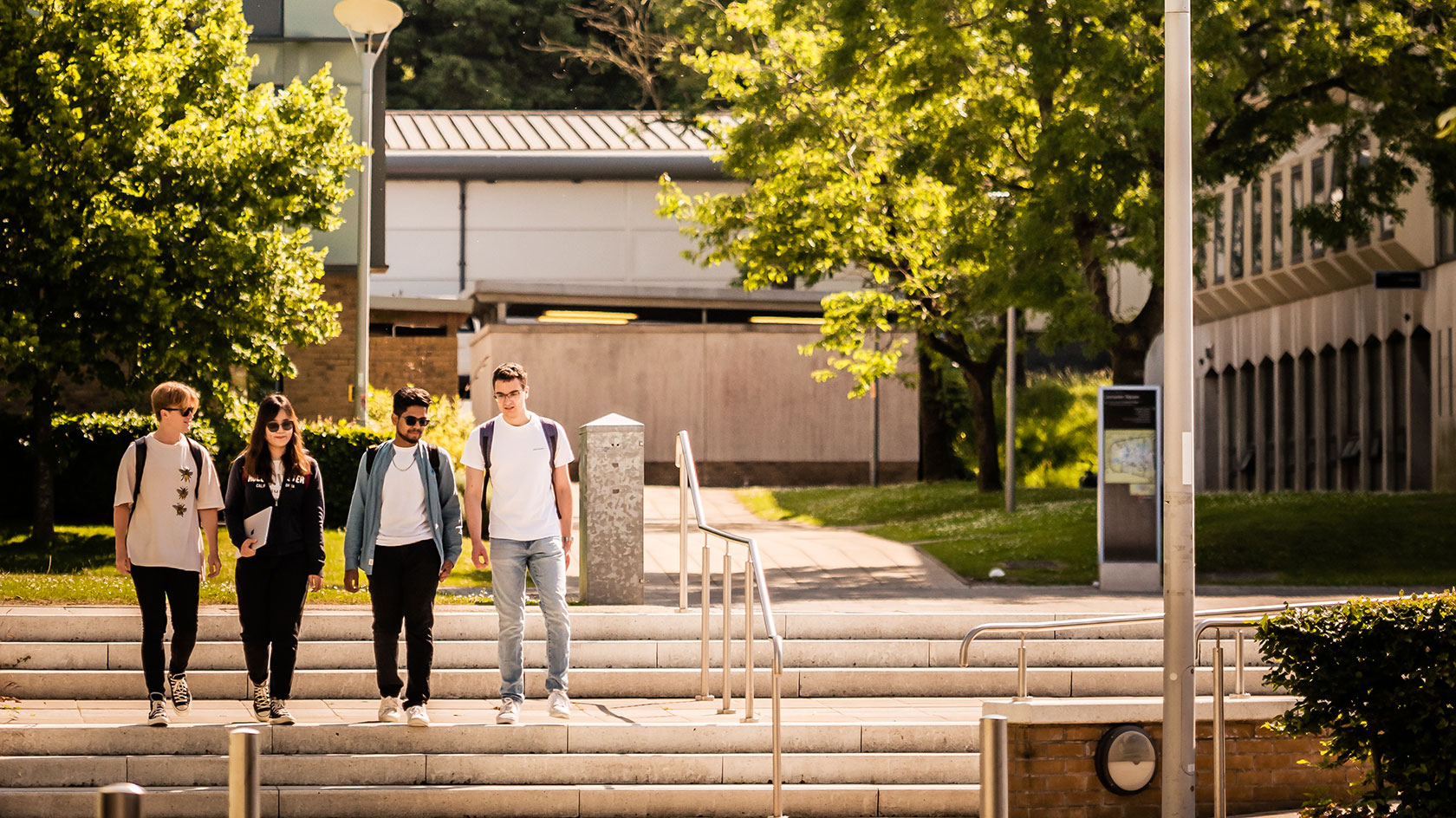
Lancaster University

Lancaster University Reimagines Partner Engagement with Salesforce
Sharing knowledge and working alongside external partners are core components of Lancaster University’s identity and mission statement. From student placements to consultancy work, business support, and much more, the university is constantly working with partners across many different projects. But with these projects spread across four faculties with dozens of departments and teams all using their own systems, there was no unified way to manage these engagements – making it impossible to build effective long-term partnerships or track the impact of projects organisation-wide.
To break down its silos and deliver a consistent, streamlined partner experience, the university set out to unify business engagement across the entire institution on a single Salesforce platform, renewing the focus on the partner experience.
-
4Faculties consolidated onto a single platform
-
90%License cost savings
-
60%Revenue increase in university consultancy services
Breaking Down CRM Silos
Lancaster University prides itself on knowledge exchange and engagement with the local community and businesses. However, in the higher education sector, it is not enough to simply participate in engagement projects. Universities must also be able to demonstrate the impact of that engagement.
Programs like the Higher Education – Business and Community Interaction (HE-BCI) survey require universities to report the measurable value of what they do. And often, these programmes drive critical funding.
For Lancaster University, the key barrier to effective reporting was its siloed organisational structure, especially with respect to partner engagement. Keeping up with dozens of departments, across four faculties, who engage with external partners and use their own system became a futile task.
Ben Titley, CRM Business Analyst at Lancaster University, explained: “It’s like we have 50 different businesses with different business models doing different things.”
Without a centralised approach to partner management, reporting was immensely challenging. The lack of continuity between and after projects also led to a frustrating experience for both partners and university staff. Almost every project had to be treated as a new engagement, making it impossible to build effective, long-term partnerships.
Seeing our vision for a fully cross-faculty CRM come to fruition is truly exciting. There are so many things we can now do with Salesforce, it’s just a matter of deciding what’s next.” Ben Titley, CRM Business AnalystLancaster University
User-led Partner Management Transformation
Lancaster University wanted to bring its data together into a singular institutional view and put a renewed focus on the partner experience. After an exhaustive solicitation process, the organisation chose to build a new CRM system on Sales Cloud, creating the Knowledge Exchange & Engagement Portal – KEEP.
Sales Cloud was an ideal fit for Lancaster University’s goals. It provided the capabilities to centralise partner management onto a single platform cost-effectively, along with a rapid path to value.
“Adoption went even smoother than expected,” added Titley. “Because we took the time to talk to people and understand their problems with the old system, there was almost no resistance to change. We were able to address users’ specific frustrations, and they could tell that it was a system designed for them, not just something imposed from above.”
Alongside Sales Cloud, Lancaster University is utilising Salesforce Knowledge to provide a database of useful resources. These include knowledge articles and videos targeted towards specific users – such as a Clean Growth Portal for partners interested in sustainability – as well as how-to guides to teach companies how to make the most of KEEP.
The university has also begun building a Partner Community where partners will be able to access forms, receive targeted alerts about upcoming projects, interact with other businesses in the university ecosystem, and self-manage aspects of their own projects with the university, such as internship applications.
Explore the solutions:
Service Cloud
Improved Revenue, Reduced Costs, and a Unified Partner Experience
Lancaster University is currently completing the final stages of its Salesforce rollout – a 3-year phased plan. Feedback from both partners and university staff has been overwhelmingly positive, and the university is already reaping the rewards.
For instance, Sales Cloud has played a key role in growing the organisation’s consultancy revenues, and the Salesforce solutions are driving significant savings on software licenses. The university’s IP and Commercialisation team previously had four users relying on a standalone, bespoke system that cost £10,000 per year. By migrating the team to Sales Cloud, the university reduced license costs by approximately 90%.
The new CRM solution is also enabling a variety of other process improvements, which has transformed the partner experience. When the university is recruiting partners for a new project, it can now send out prefilled eligibility forms, saving valuable time.
“It might sound like a small change,” said Titley. “But prefilled forms are a massive improvement. Removing the need for partners to keep answering the same questions for every project eliminates a major source of frustration.”
For other institutions considering their own CRM overhaul, Titley had this advice: “Get your objectives and scope nailed down at a high level first, then go out and talk to people. Tell them what’s happening and keep them informed. Making stakeholders part of the project pays dividends when it comes to adoption.”
Drive institution success from anywhere.
More about Lancaster University
Lancaster University is among the UK’s leading higher education institutions, consistently ranking in the top 15 across three major league tables. The university campus spans 560 acres of parkland, and is home to approximately 16,600 students.